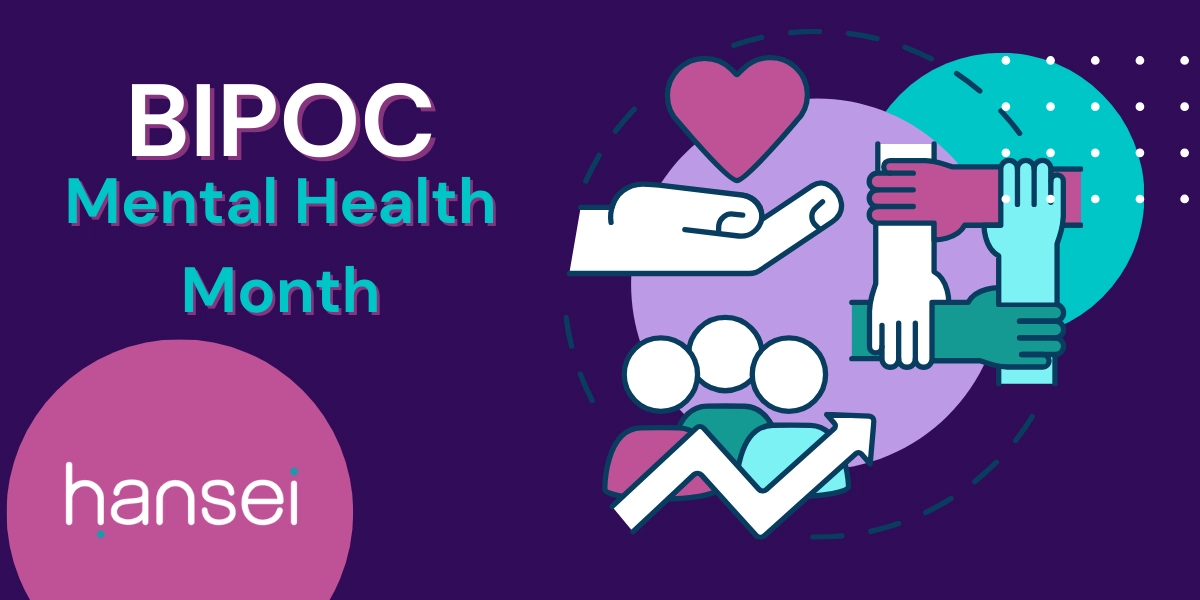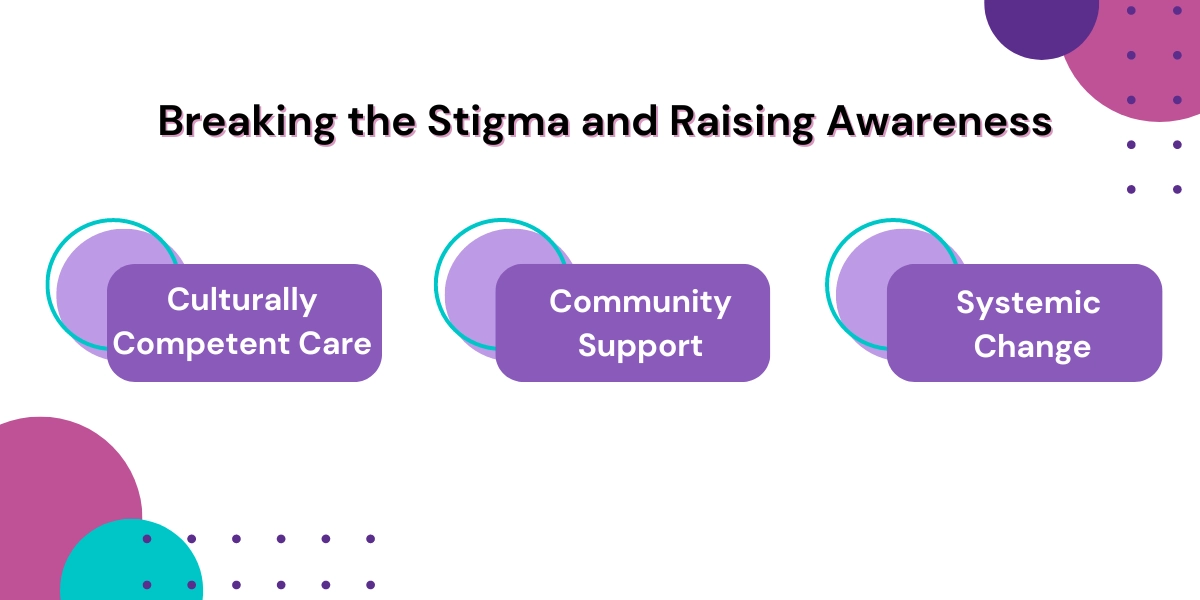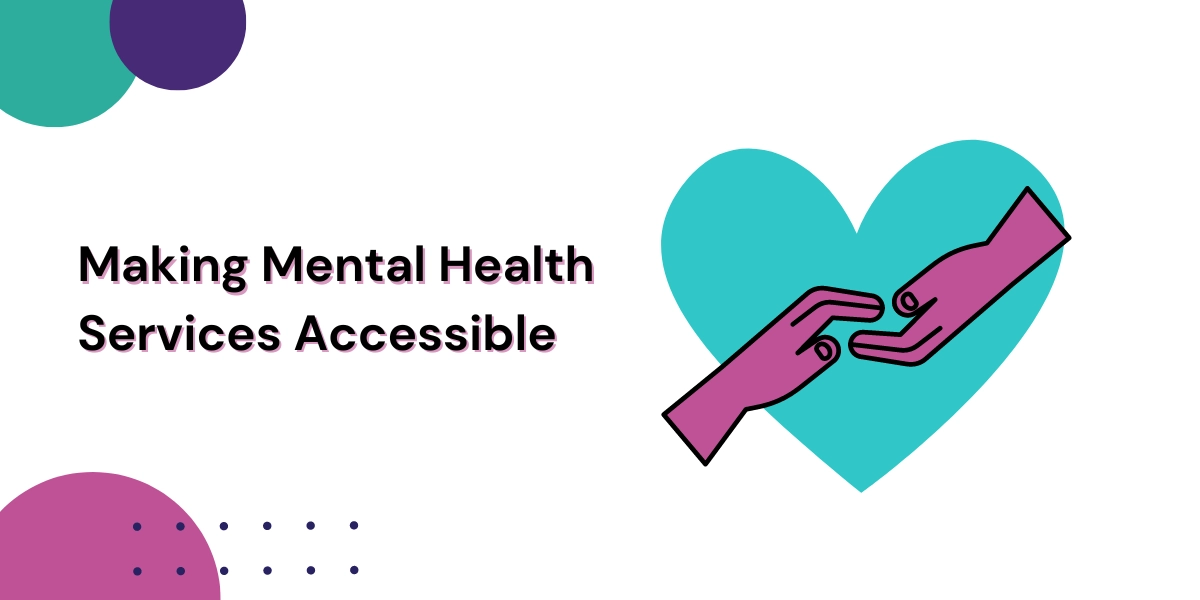Blog

July is BIPOC Mental Health Month, a time to focus on the mental health challenges faced by Black, Indigenous, and People of Color (BIPOC) communities. This month is all about raising awareness, reducing stigma around mental health, and promoting culturally sensitive support and resources for BIPOC individuals. The goal is to foster understanding, encourage self-care, and push for changes to make mental health services fair and accessible for everyone.
What is BIPOC Mental Health?
BIPOC communities face unique stressors and barriers that impact their mental health. These include systemic racism, discrimination, economic inequalities, and historical trauma. These factors significantly influence the prevalence and impact of mental health issues in these communities.
Systemic Racism and Discrimination
Racism and discrimination are everywhere, from schools and jobs to healthcare and housing. These experiences can lead to chronic stress, anxiety, depression, and other mental health issues. For example, racial trauma is linked to higher rates of post-traumatic stress disorder (PTSD) among BIPOC individuals. Constantly dealing with a prejudiced society can make people feel hopeless and stressed out.
Economic Inequalities
Economic disparities make mental health challenges even worse in the BIPOC community. Financial stress, and all the problems that come with it, can add to mental health struggles and make it hard to access necessary mental health care. Fixing these economic disparities is crucial for improving mental health outcomes for BIPOC individuals.
Historical Trauma
Historical trauma from events like colonization, slavery, and forced assimilation still affects BIPOC communities today. This trauma can show up in stress, grief, and loss passed down through families. Indigenous communities, for example, have higher rates of suicide. Recognizing and addressing historical trauma is essential for healing and building resilience in these communities.

Breaking the Stigma and Raising Awareness
One of the main goals of BIPOC Mental Health Month is to reduce the stigma around mental health issues in BIPOC communities. Stigma often stops people from seeking help and getting the support they need. By encouraging open conversations about mental health and normalizing these discussions, BIPOC Mental Health Month aims to create a more supportive and accepting environment.
Culturally Competent Care
Culturally competent care is essential for addressing the mental health needs of BIPOC individuals effectively. This means understanding and respecting cultural differences, values, and beliefs that influence mental health and well-being. Mental health professionals need to be trained to provide care that is sensitive to the unique experiences and backgrounds of BIPOC clients. Culturally competent care can improve trust, communication, and treatment outcomes.
Community Support and Resources
Community support is crucial for promoting mental health and well-being. BIPOC Mental Health Month encourages the development and use of community-based resources that are accessible, culturally relevant, and tailored to the needs of BIPOC individuals. Peer support groups, culturally specific mental health programs, and community centers can provide valuable spaces for connection, healing, and empowerment.
Pushing for Systemic Change
While individual and community efforts are important, systemic change is necessary to address the root causes of mental health disparities in BIPOC communities. Advocacy and policy reform are critical parts of this change. BIPOC Mental Health Month serves as a platform to push for policies that promote mental health equity, increase funding for mental health services, and address social determinants of health.

Making Mental Health Services Accessible
Improving access to mental health services is a top priority. This includes expanding insurance coverage, increasing the availability of culturally competent providers, and reducing barriers to care like transportation and language issues. Telehealth services, which became more popular during the COVID-19 pandemic, offer a promising solution to improve accessibility, especially for people in underserved areas.
Education and Training
Education and training for mental health professionals, educators, and community leaders are essential for creating a more inclusive and supportive mental health care system. Training programs should focus on cultural competence, trauma-informed care, and understanding the unique needs of BIPOC communities. Additionally, incorporating mental health education into school curricula can help reduce stigma and promote early intervention.
Celebrating BIPOC Mental Health Month with Hansei
BIPOC Mental Health Month is a time to celebrate the resilience, strength, and contributions of BIPOC communities. It’s an opportunity to honor the diverse cultural heritage and traditions that shape mental health and well-being. Celebratory events, art exhibitions, storytelling, and cultural performances can foster a sense of pride and solidarity.
Hansei knows that sharing personal stories of mental health struggles and triumphs can inspire others to seek help and break the silence around mental health issues. Advocacy efforts, such as social media campaigns, public speaking, and community events, can amplify the voices of BIPOC individuals and highlight the importance of mental health equity in the behavioral health industry. We are committed to bringing this equality and celebrate BIPOC Mental Health Month this July.

Ready to focus on providing healthcare? Let us lighten your load.
We’re here to address your pain points and create growth opportunities for your organization. We’re passionate about what we do, and it shows in every interaction. Learn what makes us tick and schedule a demo today.